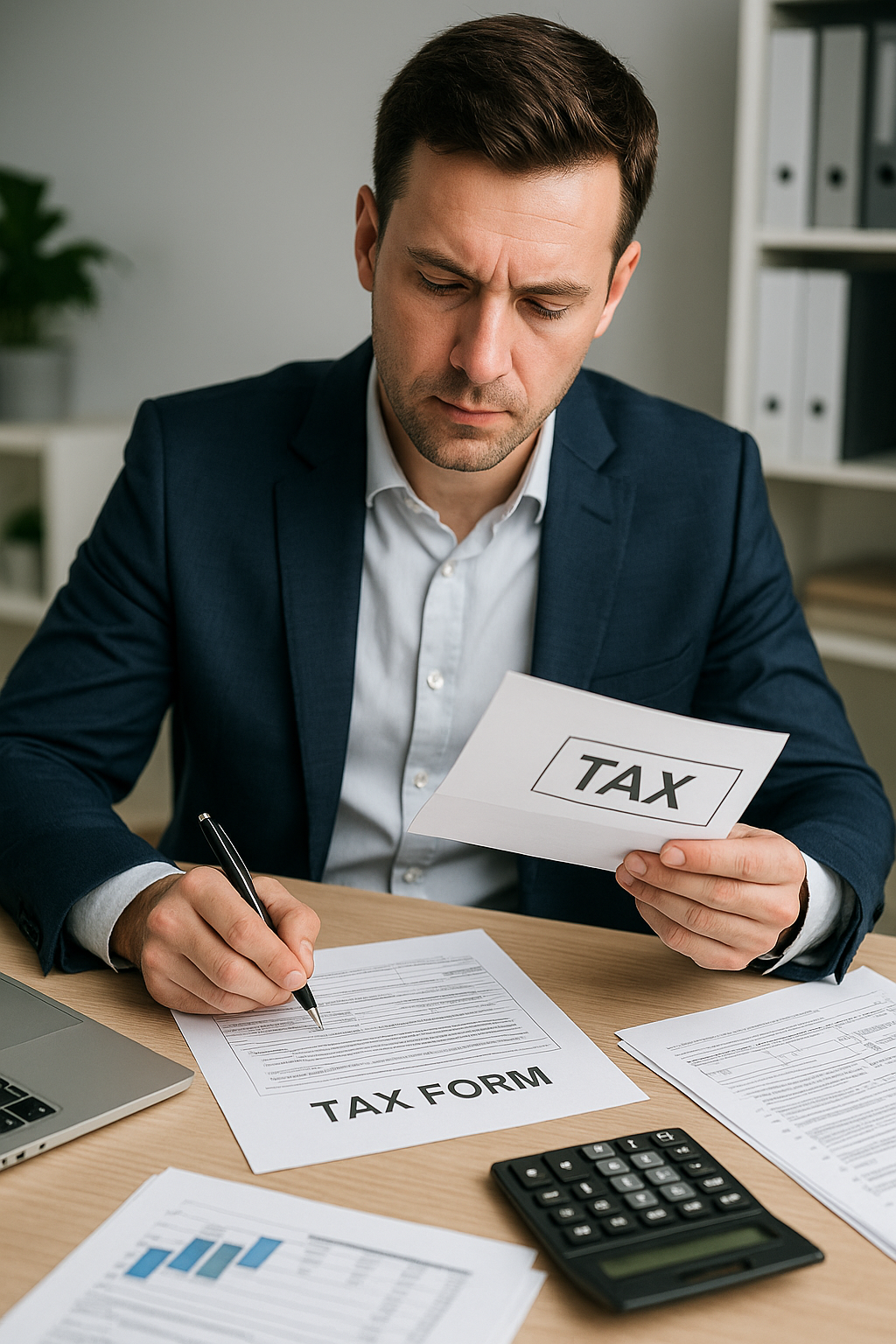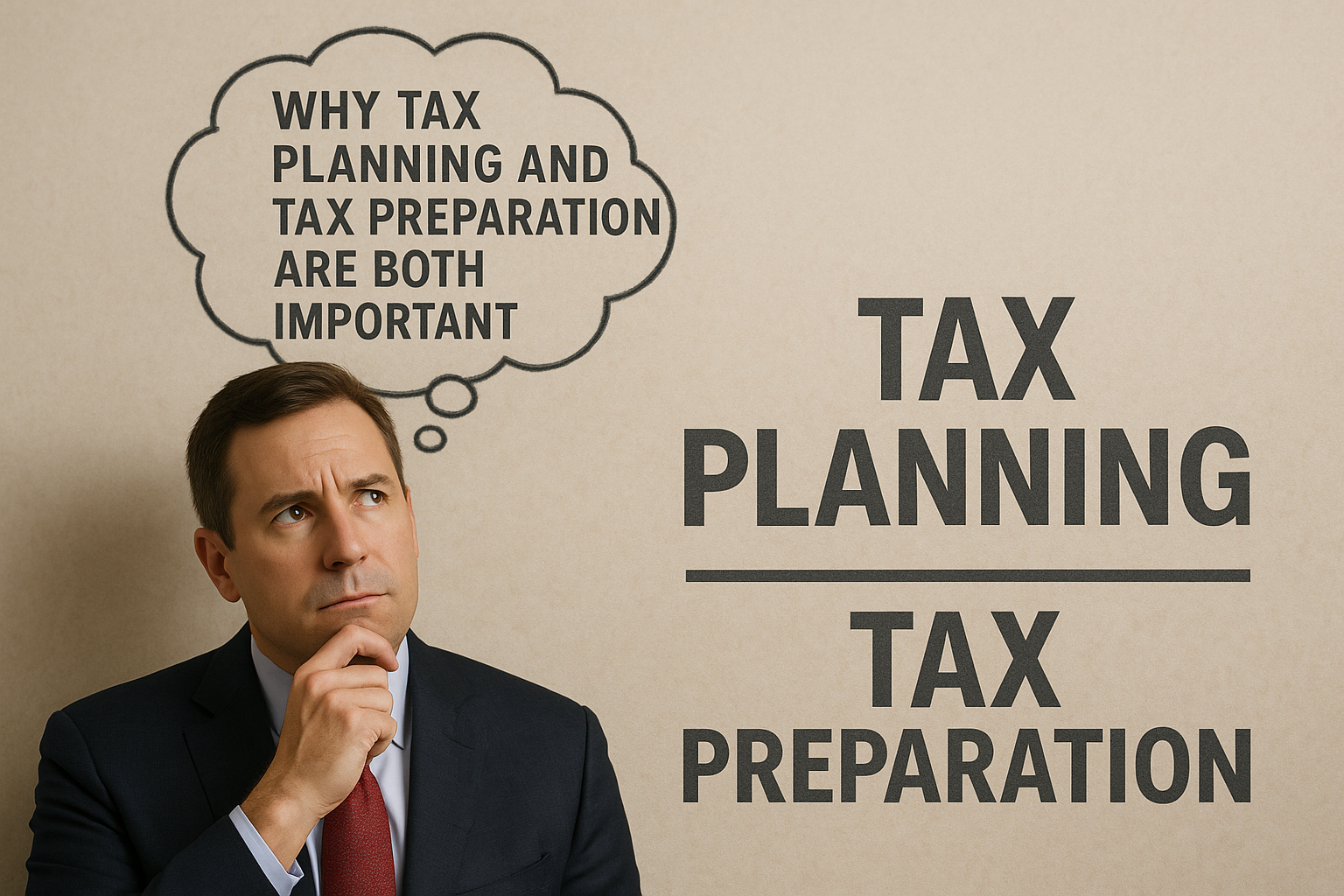Are you only preparing your taxes, or are you truly planning them? Our tax advisory team specializes in proactive strategies that help individuals and businesses save thousands. Schedule a consultation today and start planning your way to lower taxes.
Tax Planning vs. Tax Preparation: What’s the Difference and Why It Matters
When most people think about taxes, they think about April 15 and filing their return. But what if you could legally reduce your tax bill long before tax season even begins? That’s the power of tax planning—and it’s very different from tax preparation.
Many taxpayers confuse the two, but understanding the difference could save you thousands of dollars.
What Is Tax Preparation?

Tax preparation is the process of filing your annual tax return accurately and on time. It’s focused on the past year—reporting income, deductions, and credits exactly as they happened.
Key points about tax preparation:
- Ensures compliance with IRS and state tax laws.
- Uses documents like W-2s, 1099s, receipts, and financial statements.
- Corrects errors, reconciles forms, and submits your return.
- May include amendments if prior-year returns were incorrect.
In short, tax preparation is about reporting history. It doesn’t change your liability; it just ensures you pay the correct amount.
What Is Tax Planning?

Tax planning, on the other hand, is forward-looking. It’s about making financial decisions today that strategically reduce your tax liability in the future.
Key elements of tax planning:
- Choosing the right business structure (LLC, S-Corp, C-Corp, Partnership).
- Timing income and expenses to maximize deductions.
- Contributing to retirement accounts to lower taxable income.
- Identifying credits for education, energy efficiency, or hiring.
- Planning for capital gains and investments.
Unlike preparation, tax planning is about shaping the future—so you pay less tax legally and keep more of your income.
Why Both Are Important

Many taxpayers rely only on preparation and miss opportunities to save. Here’s why you need both:
- Tax Preparation keeps you compliant and avoids penalties.
- Tax Planning creates strategies that reduce what you’ll owe in the first place.
- Together, they ensure you’re not just filing correctly, but also maximizing savings.
Real-Life Example

Imagine a small business owner who earns $120,000 in net income. If they simply prepare their taxes, they may owe over $30,000 in federal income and self-employment taxes.
But with planning:
- Electing S-Corp status could save thousands in self-employment taxes.
- Strategic retirement contributions could reduce taxable income.
- Shifting certain expenses into the current year could increase deductions.
Instead of just reporting numbers, planning changes the numbers you report.
When to Start Tax Planning

The best time to start planning is now, not when your return is due. Effective tax planning happens year-round, especially:
- At the start of a business.
- Before making large purchases or investments.
- When your income significantly changes.
- Before year-end (December planning is critical).
Tax preparation is about compliance. Tax planning is about strategy. Both matter, but planning is where true savings happen. Don’t wait until tax season—smart strategies throughout the year could mean a smaller bill and more money in your pocket.






